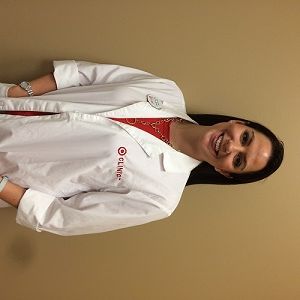Contemporary Clinic Supports PAs
Contemporary Clinic Editorial Board member, Alexie Leitner, PA-C, Healthcare Market Leader at Target Clinics explains what it's like to have the best job in America.
Physician assistants (PA) are valued members of patient care teams. PAs practice medicine in every specialty, every setting, and every state.
Between 2009 and 2014, the PA profession grew 36% and today, there are more than 104,000 certified PAs in the United States, according to the American Academy of Physician Assistants. PAs conduct physical exams, diagnose and treat illnesses, order and interpret tests, write prescriptions, perform medical procedures, counsel patients on preventive health care, coordinate patient care, make rounds in nursing homes and hospitals, and conduct clinical research.
PAs are educated through intense graduate-level programs and require the same prerequisite courses as medical schools. In addition, PAs complete at least 2000 hours of clinical rotations in every major specialty, from family medicine to general surgery to emergency medicine, as part of their education.

In honor ofNational PA Week, October 6 through 12,Contemporary Clinicinterviewed PA and Editorial Board member, Alexie Leitner, PA-C, Healthcare Market Leader at Target Clinics, on what it’s like to havethe best job in America.
What made you decide to become a physician assistant (PA)?
I have always loved science and so I started college with a plan to become a secondary school science teacher. That plan changed when I took a course in classroom management. I realized then that my passion for teaching was not about the Krebs cycle, but about helping people. I talked to a career counselor about my interest in teaching, science, and helping people and she recomended a career interest survey in addition to some job shadowing. After the job shadowing and some volunteer work at a hospital, it was clear that the PA profession was the career for me.
Why did you choose to work in a retail-based clinic (or retail health)?
I had been working in family medicine and felt it was time to make a change. I knew I wanted to work in a setting where I still had relationships with families and saw patients across the entire age spectrum. A former colleague of mine who knew I was looking for a change was working at Target Clinic and recommended I look into retail too—and I am so glad she did! I love how retail health fulfills those wants and also supports my passion for improving patient access to health care and reducing the cost of care. The ability to make specialty changes is another reason I love this profession!
What are some challenges that you face as a PA working in retail health?
While PAs face many challenges, one of the biggest challenges for PAs in retail health is overcoming the legislative barriers for practice. These barriers can prevent retailers from being able to hire PAs or prevent them from being able to practice at the top of their licence—both of which impact the scope of services that can be offered and the number of patients that can be served.
How can we overcome these challenges?
Overcoming these challenges involves education and advocacy. Its important that we get involved with lawmakers, insurance companies, and employers to help them understand how these barriers impact the delivery of health care and patient experience. PA week is a great time to get involved! Many academies will host events, and I advise my fellow colleagues to check with their local chapter.
What are your hopes for the future of retail health?
Retail health offers so much to the health care landscape by providing high-quality, cost-effective care with improved accesibility for our patients. My hope for the future of retail health is continued growth of sites and services as well as further integration within health systems.
